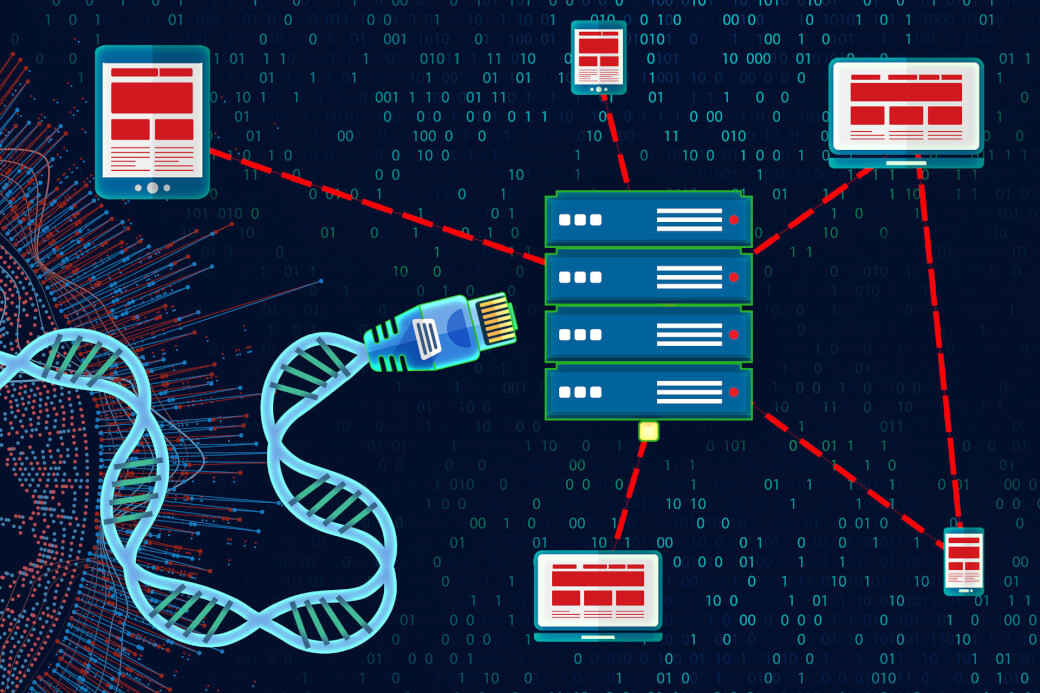China is slowly tightening its grip on one of its most valuable resources: health data.
On July 3, China’s National People’s Congress of China published a draft Data Security Law, that represents a shift in the country’s data strategy. According to the National Information Center, China will pursue “asymmetric advantages in this new round of global technological competition.” The Central Planners want to take advantage of China’s unique population size to enable domestic companies to gather, use, and sell large amounts of data, both domestically and internationally.
According to TechNode, in November 2019 the Fourth Plenary Session of the Nineteenth Central Committee of the Communist Party characterized data as a “factor of production.” Four months later, the National Information Center compared data to oil:
“If oil is the core resource in the era of industrial economy, then data is the most important strategic resource in the era of digital economy.”
—National Information Center
Why is this relevant to the U.S.?
China is the world’s largest producer of active pharmaceutical
ingredients (APIs). The U.S. is heavily dependent on drugs that are either sourced from China or include APIs sourced from China. This is especially true for generic drugs, which comprise most prescriptions filled in the United States. Drug companies are not required to list the API country of origin on their product labels; therefore, U.S. consumers may be unknowingly accepting risks associated with drugs originating from China.
RELATED: China’s Biotech Ambitions Requires Protecting U.S. Personal Health Data As A National Security Matter
According to a U.S. government study, lack of data integrity in China presents challenges for U.S. and Chinese health regulators. In 2016, the China Food and Drug Administration investigated 1,622 drug clinical trial programs and canceled 80% of these drug applications after it found evidence of fraudulent data reporting and submissions of incomplete data, among other problems.
China’s share of U.S.-bound exports of biotech products, medical
equipment and supplies, and pharmaceuticals is increasing. In 2018, U.S. imports of Chinese biotech products were $266 million, up from $194 million in 2017. U.S. imports of Chinese medical equipment have also increased significantly over the past decade. In 2018, for example, they increased to $5.9 billion, up 78% since 2010. U.S. imports of pharmaceuticals directly from China increased to $3.1 billion in 2018, up 17% year-on-year, and 76 percent since 2010.
According to a 2017 report by the Intellectual Property Commission, the cost of IP theft for the United States is somewhere between $225 billion and $600 billion. And China is responsible for 71% to 87% of that figure.
Important Data
Under China’s draft security law, data protectionism takes on an economic dimension. “Important data,” which is assessed not only in relation to national security, comes under the umbrella of economic and social development. Important data would go through a cumbersome export controls. For example, a pharma company doing clinical trials in China, would have to store all patient data in China and would be required to request approval from local authorities before transferring this data internationally.
Big Data
We are on the edge of a dramatic revolution in precision medicine, with the increasing convergence of new genetic technologies and artificial intelligence (AI). AI is a new field relying on super-computing platforms that can recognize relationships between different big-data sets. The sheer number of Chinese citizens under surveillance with little or no protection means the data sets Chinese companies and government agencies are dealing with far exceed any similar data in the West.
Founded by prodigy Jun Wang in 2015, the Shenzhen company, iCarbonX, is developing software that can learn to detect useful patterns between huge amounts of individuals’ biological, medical, behavioral and psychological data. Such a data-ecosystem will connect the biology and experience of millions of individuals to understand how their genes interact and mutate, how diseases and aging manifest in their cells and bodies over time, how their everyday lifestyle choices affect morbidity, and how these personal susceptibilities play a role in a wide range of treatments. This ecosystem is not only handling personal data but also potentially vulnerable data as it uses a smartphone application, Meum, for customers to enter insights and consult health advice.
iCarbonX has raised more than US $600 million for its digital ecosystem, which might dwarf efforts by other U.S. Internet giants at the nexus of genomics and AI. According to CB insights, iCarbonX has a $1 billion valuation, making it one of the richest healthcare start-ups in China. The company came under scrutiny by the U.S. Committee on Foreign Investment (CFIUS) in 2019.
5G is anticipated to allow for machine-to-machine communication among sensors, drones, or even swarms on the battlefield, as well as improvements in human-machine interaction. As China looks to construct a more integrated information architecture, 5G could become critical to this new ‘system of systems,’ according to Elsa B. Kania, in her testimony before the U.S.-China Economic and Security Review Commission Hearing on Trade, Technology, and Military-Civil Fusion.
She adds, “Ultimately, it is not AI alone but the synergies of AI as a force multiplier for a range of weapons systems and technologies, also including directed energy, biotechnology, and perhaps even quantum computing, that could prove truly transformative.”

